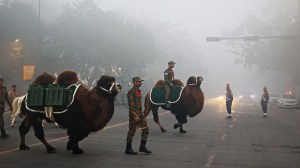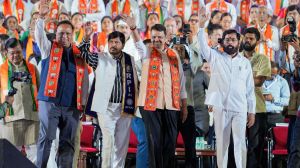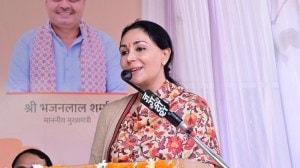Realism prevails
Good sense seems to be prevailing on the test ban issue on both sides of the debate. The US has shown admirable realism, though rather lat...

Good sense seems to be prevailing on the test ban issue on both sides of the debate. The US has shown admirable realism, though rather late in the day, in dropping 51 Indian institutions from the sanctions list. And just as belatedly, the Indian government has initiated a political process that should lead to a national consensus on whether to sign the CTBT.
This is not exactly the concert of democracies8217; which was billed to be ready to play its first movement earlier this year, but India and the US do seem to be moving in the direction of common interest. Sadly, the whole process could have been completed by now if such realism had been displayed by either side a year and a half ago. It took far too long for both to appreciate the reality of the Indian nuclear tests, to understand that the world had changed rather radically and to get ready to shed the outmoded realities of the past.
After Pokharan II, there was no compelling need for India to continue to steer clear of the pact. The military scienceestablishment did not need to test devices in the field any more. It had all the data it needed to run computer simulations. In national security terms, therefore, India could do without the right to explode further devices.
Yet, the government clung to its old moral argument, refusing to acknowledge that signing the CTBT did not constitute a capitulation any more. Quite to the contrary, it offered an opportunity for India to display its good intentions and from a position of strength, for a change. At the same time, the US fell back on its old security blanket of wide-ranging sanctions, refusing to appreciate that India8217;s case was unprecedented.
Washington has slowly begun to understand that sanctions and embargoes don8217;t work any more, even with relatively weak nations. The sanctions imposed in the latter part of this century, in particular, have either been economically ineffective or failed to pay political dividends. In the case of India, they are doomed to complete failure.
The country ispartially self-reliant and has free access to non-US technology providers. Washington should have understood on the day of the nuclear tests that it could use sanctions only as a very temporary political gesture.
Perhaps it is millennial cheer, but both sides are prepared to be less pig-headed in the last days of 1999. The US has made the first move, and it is now up to India to respond with a display of good intent. The government has successfully started the process of forging a national consensus on the issue, but the days ahead will call for a careful balancing act.
The CTBT has been an emotive issue for a long time and the need of the hour is hard-headed rationality. Certain political parties have their own compulsions and would prefer to cling to the realities of the past. And for this to be a real consensus, the government will also have to take the people along with it.
The projection of the new order, in fact, will be the most difficult part of the enterprise. It is to be hoped that the processwhich began on Friday will not finally suffer the fallout of political sniping.
- 01
- 02
- 03
- 04
- 05































